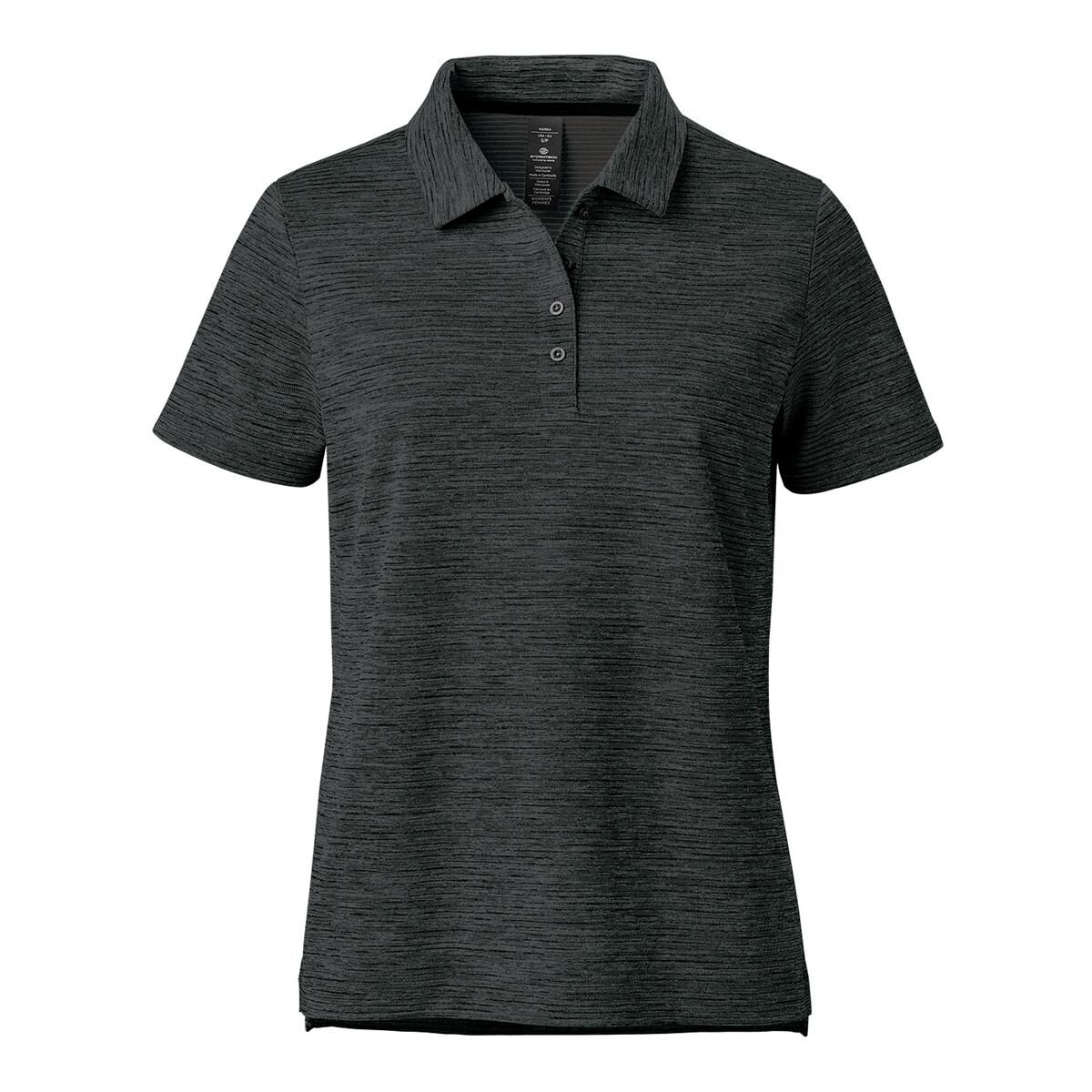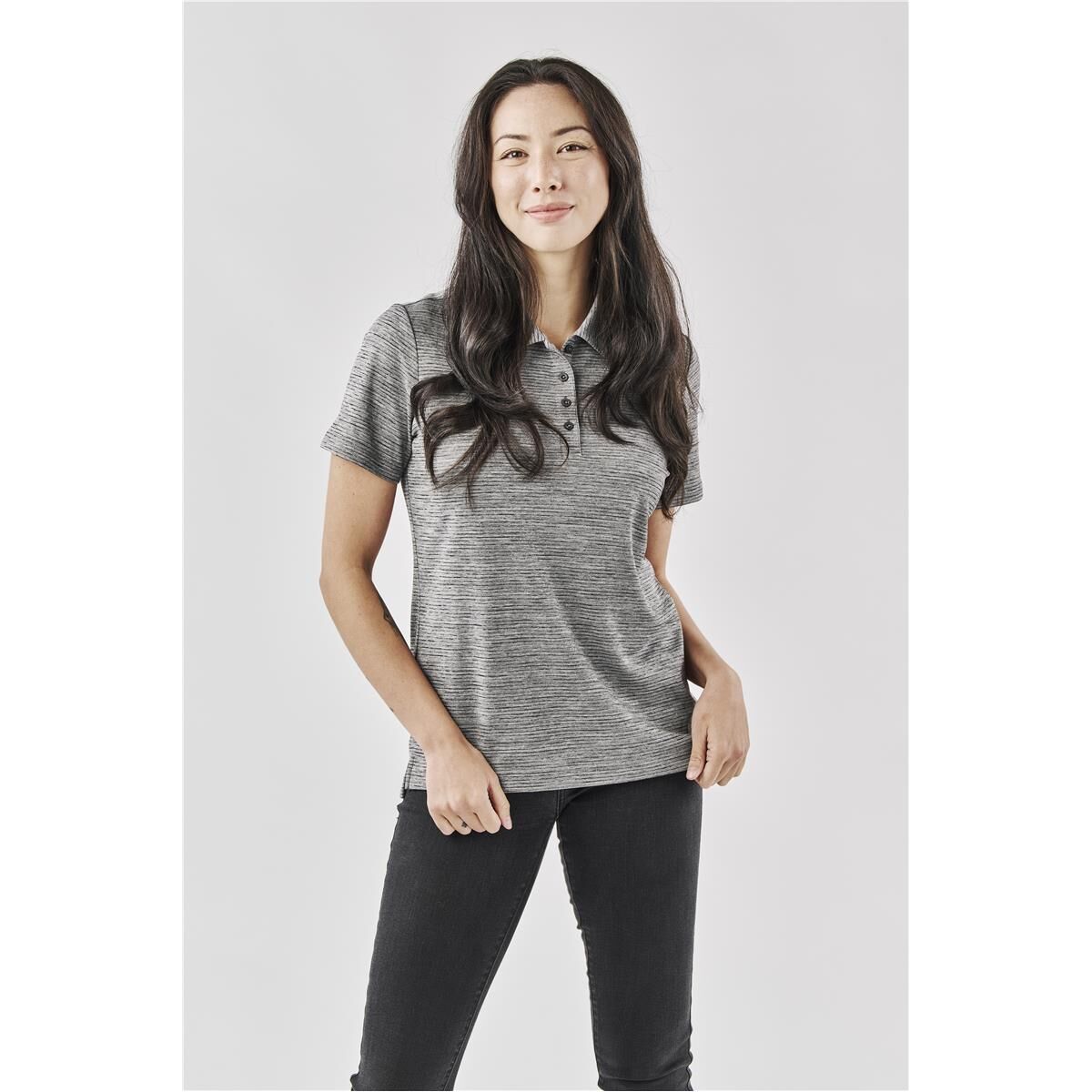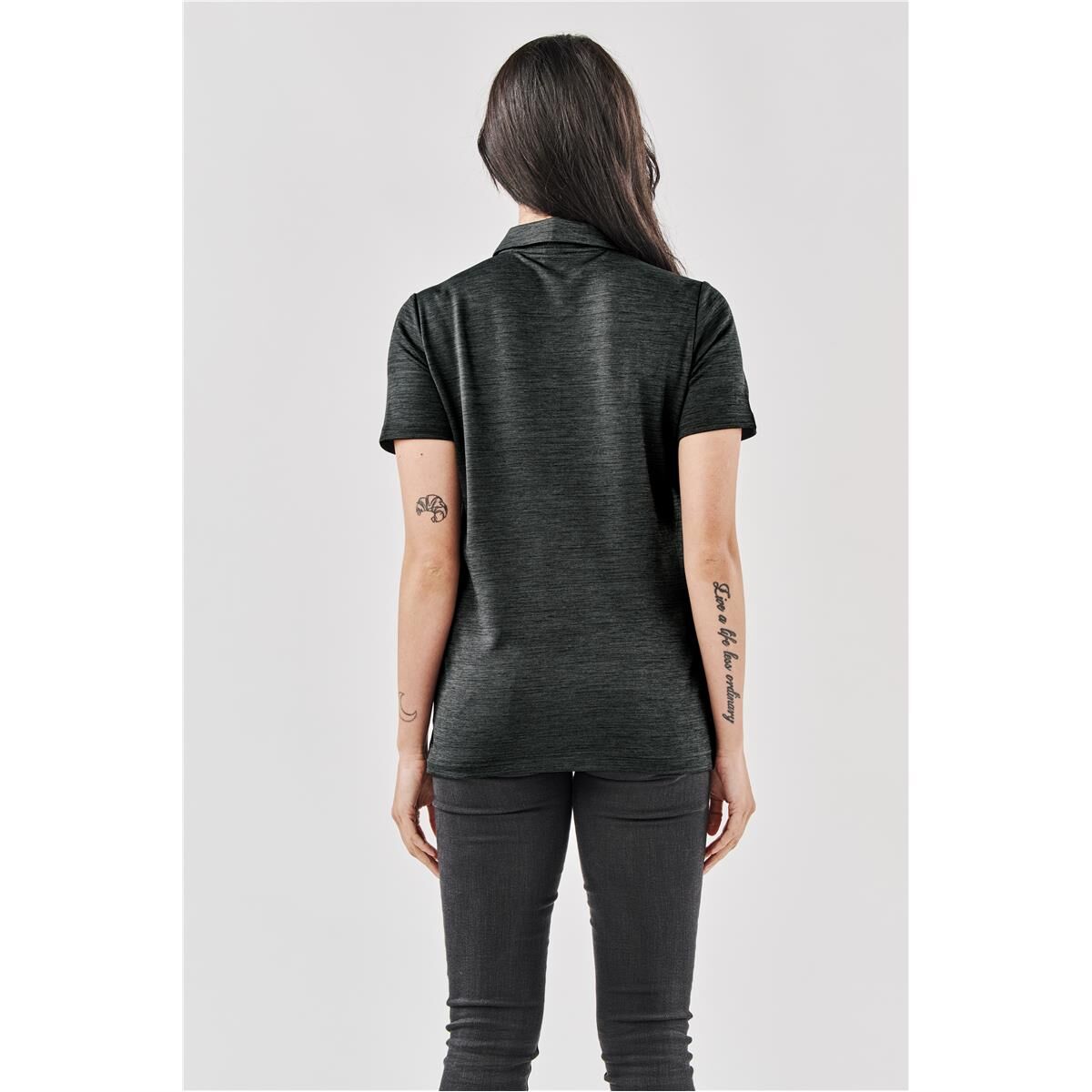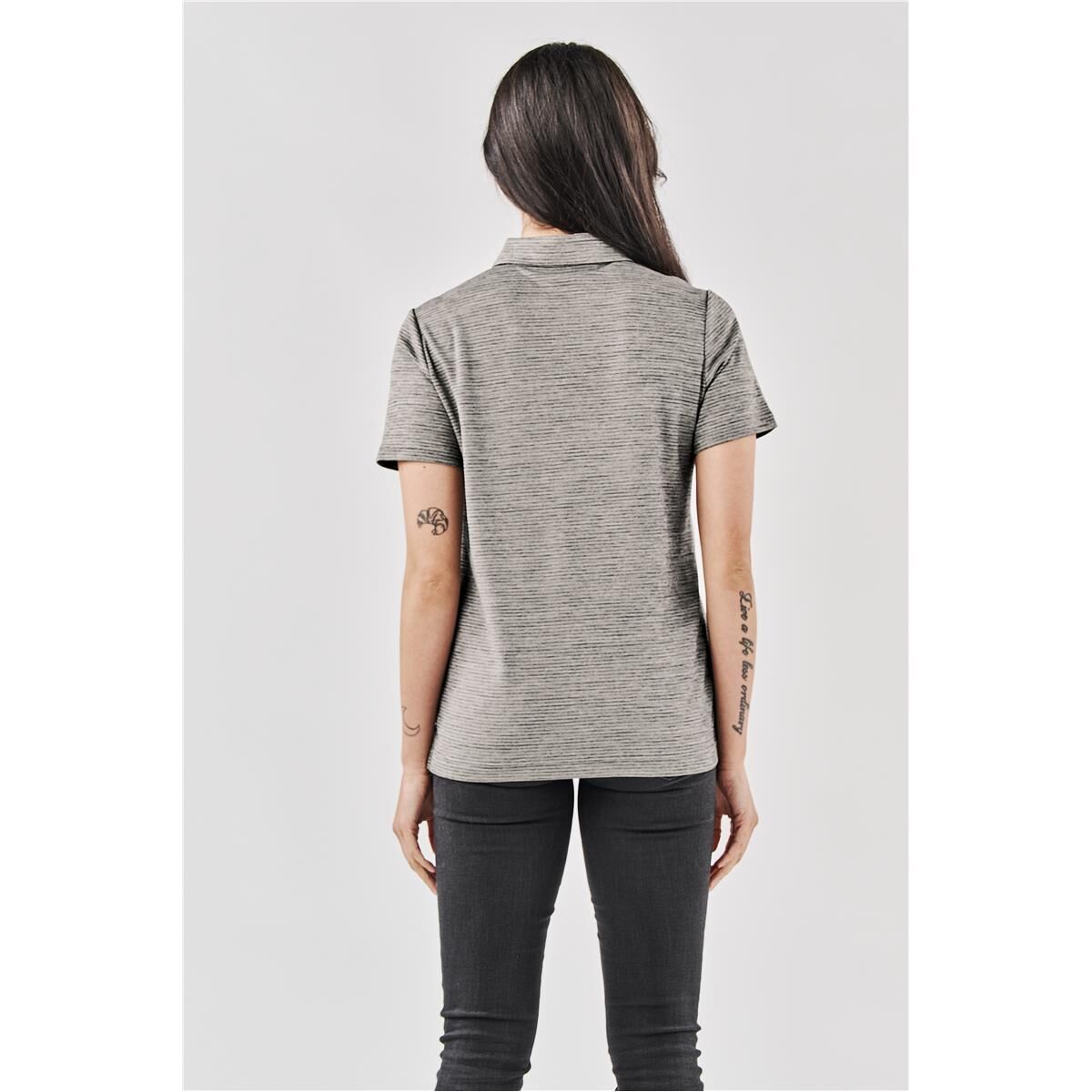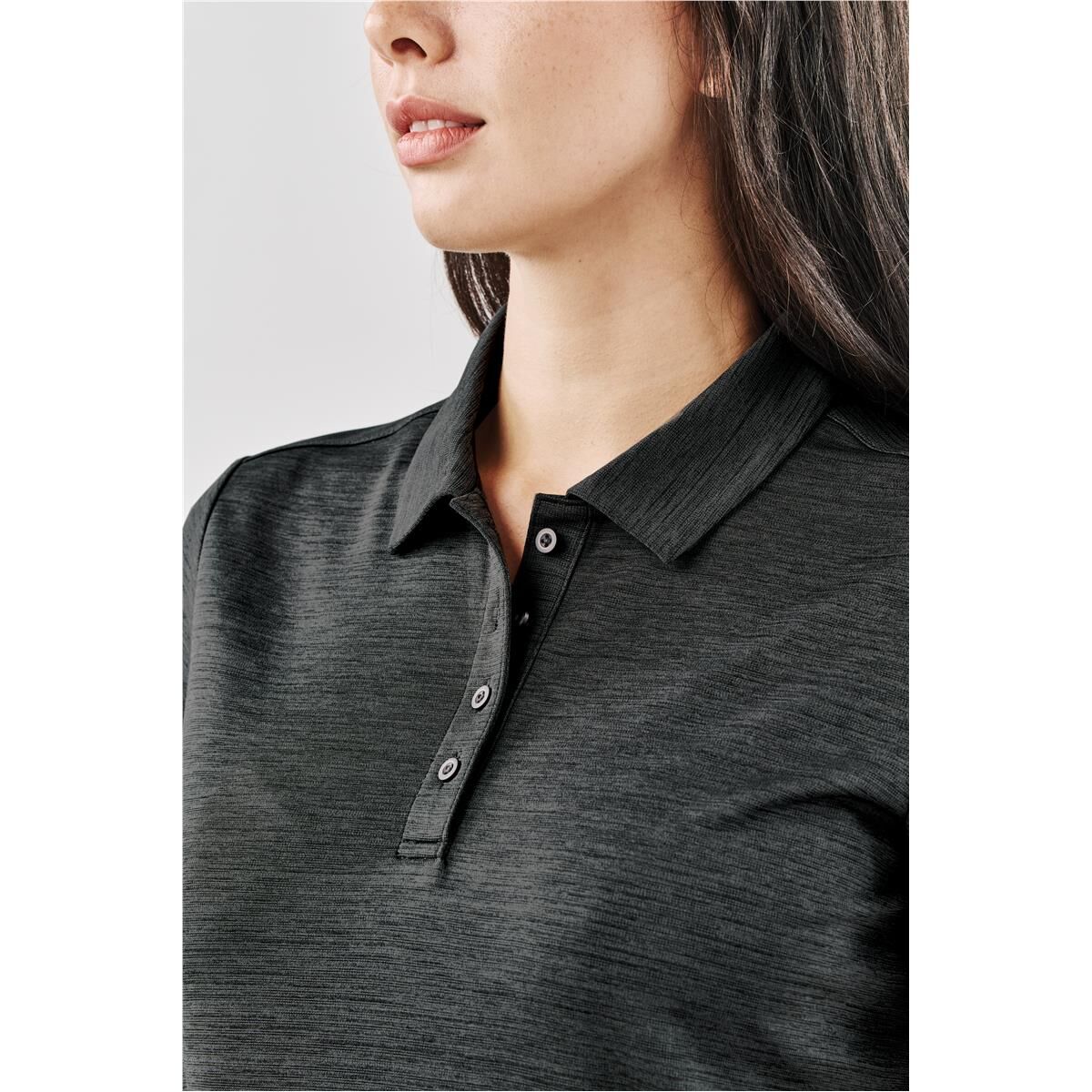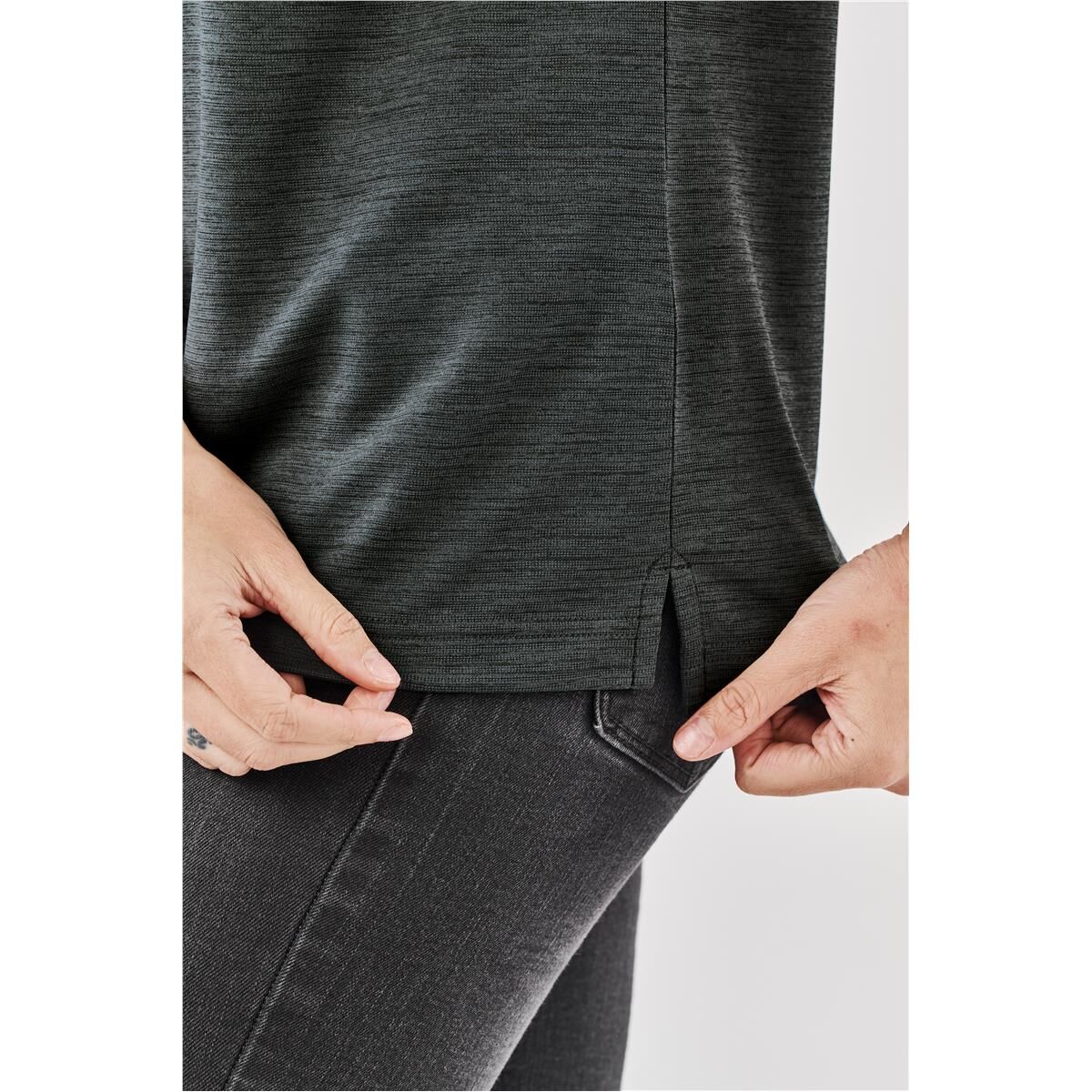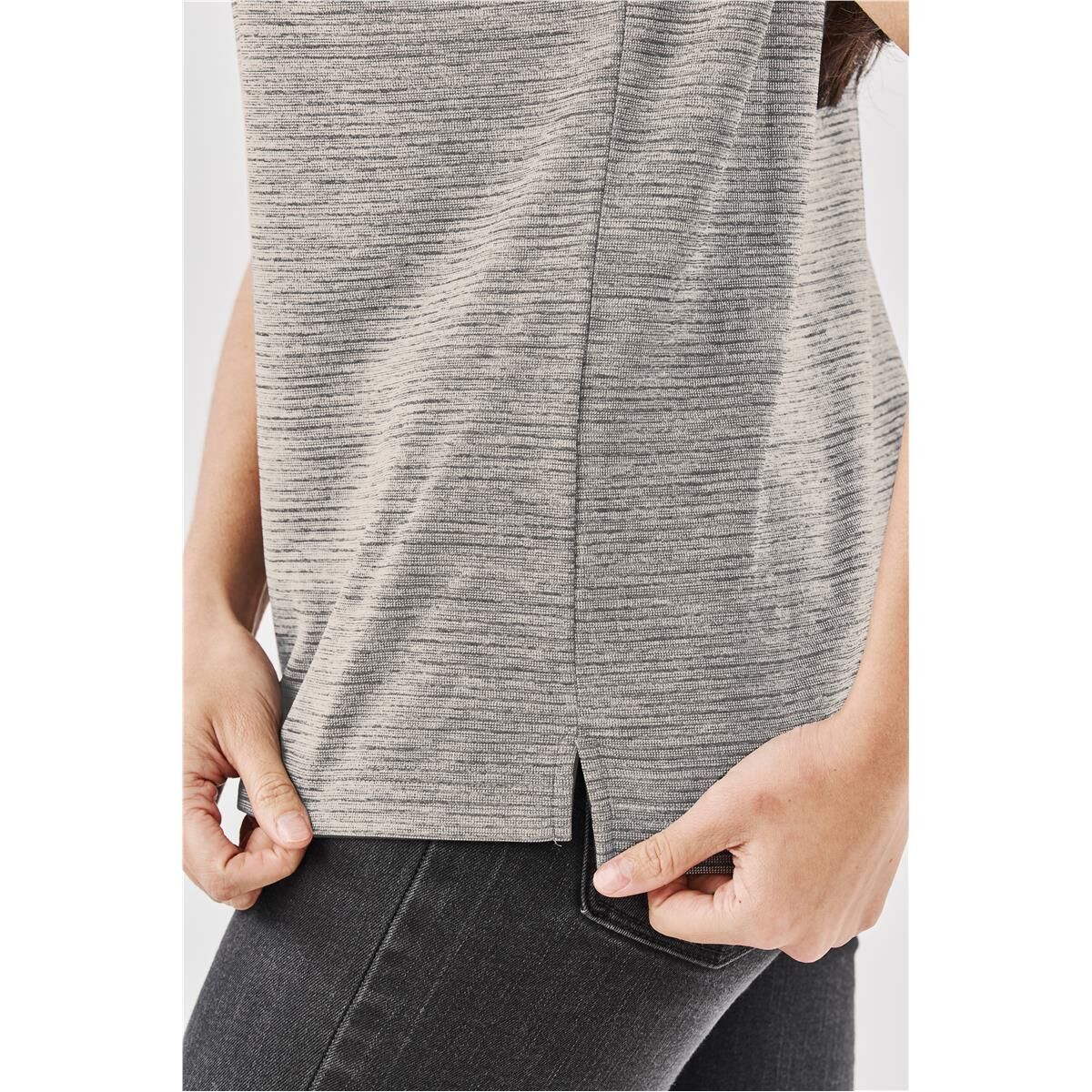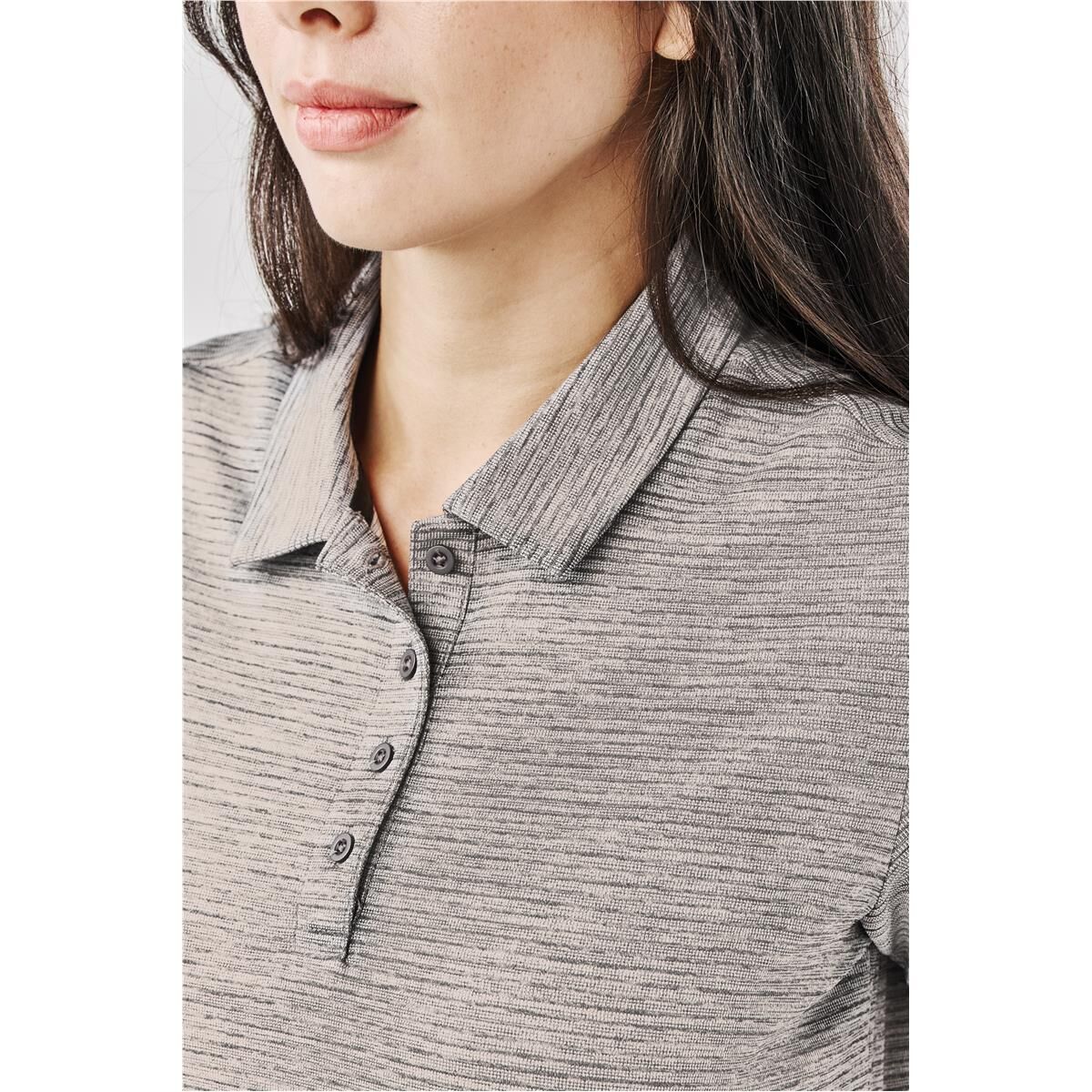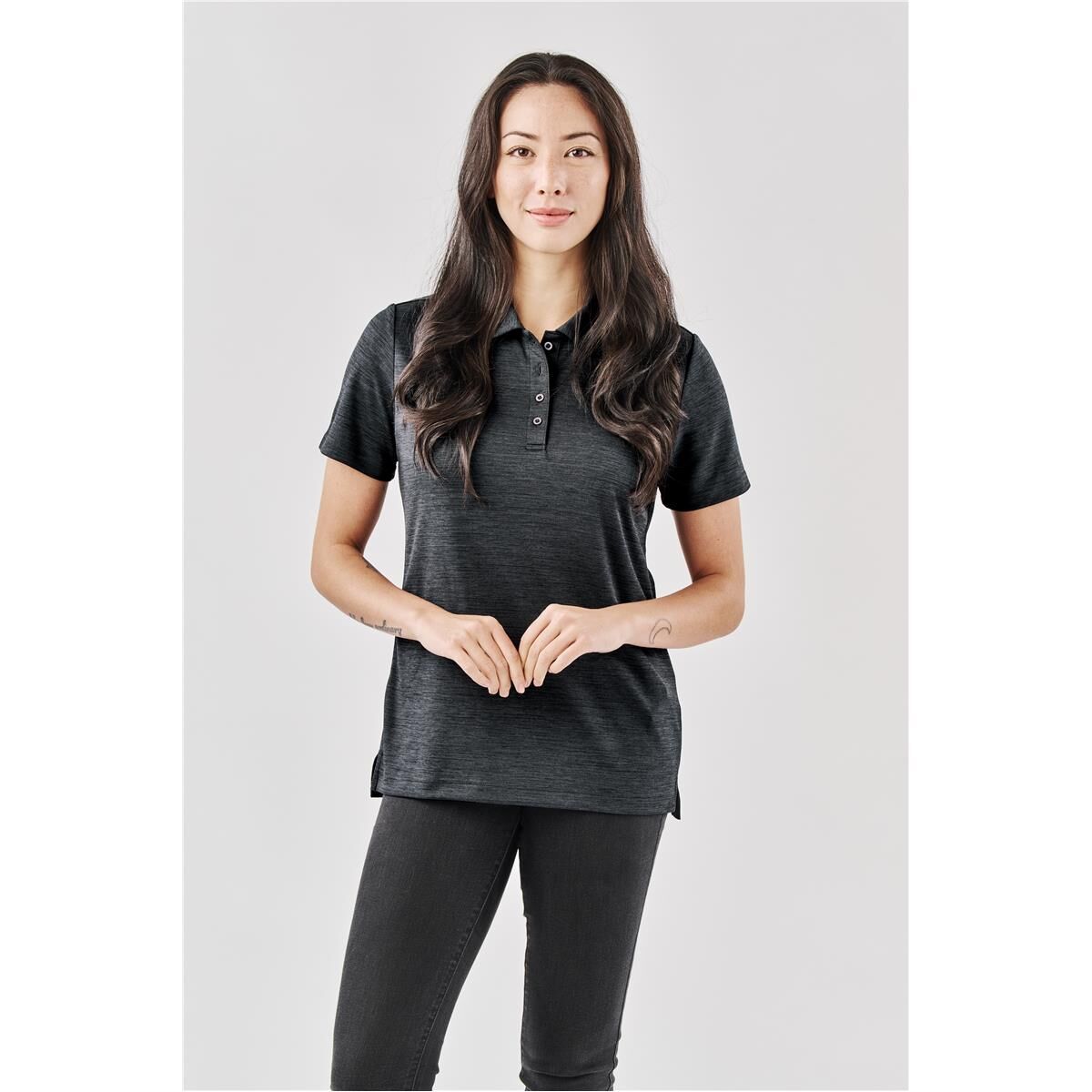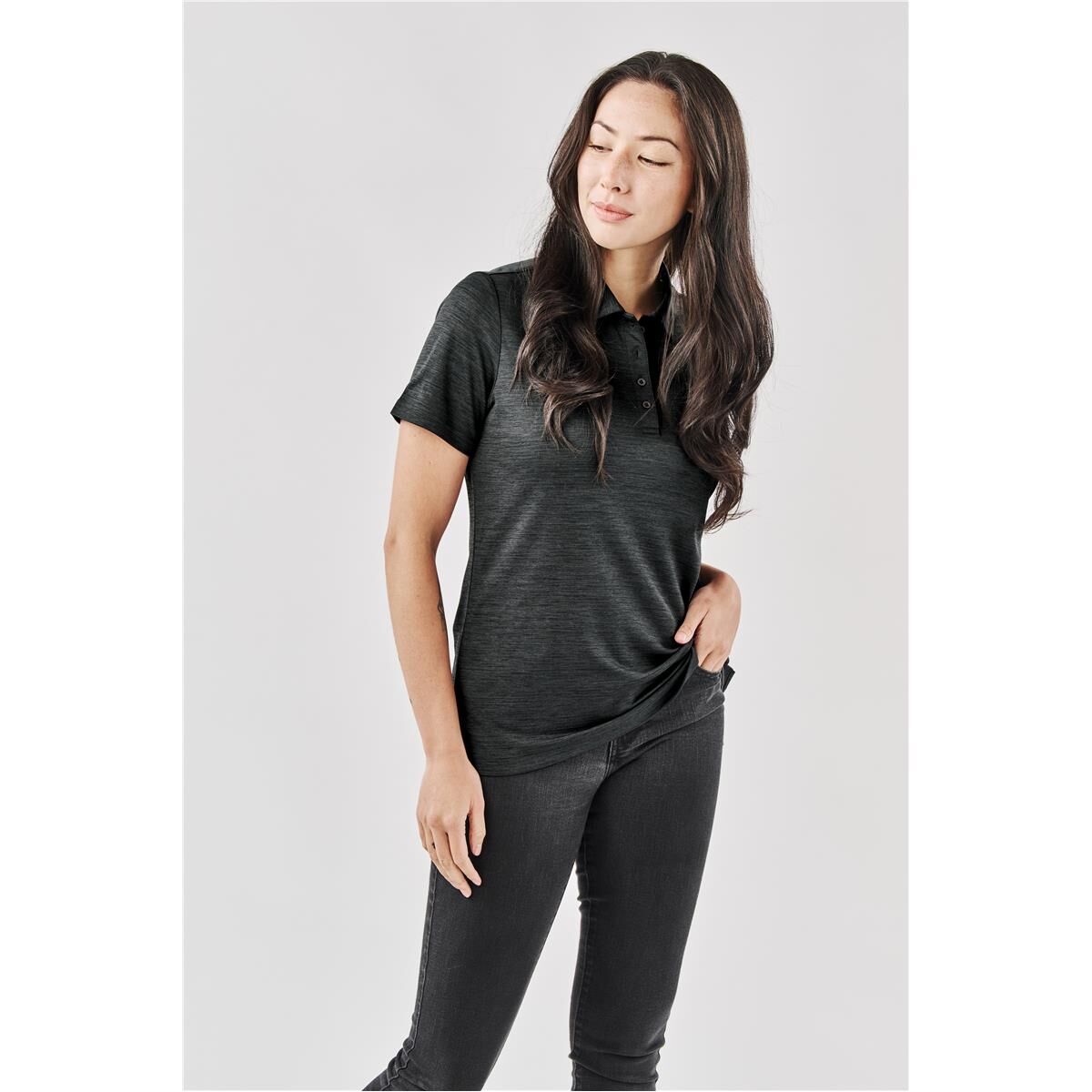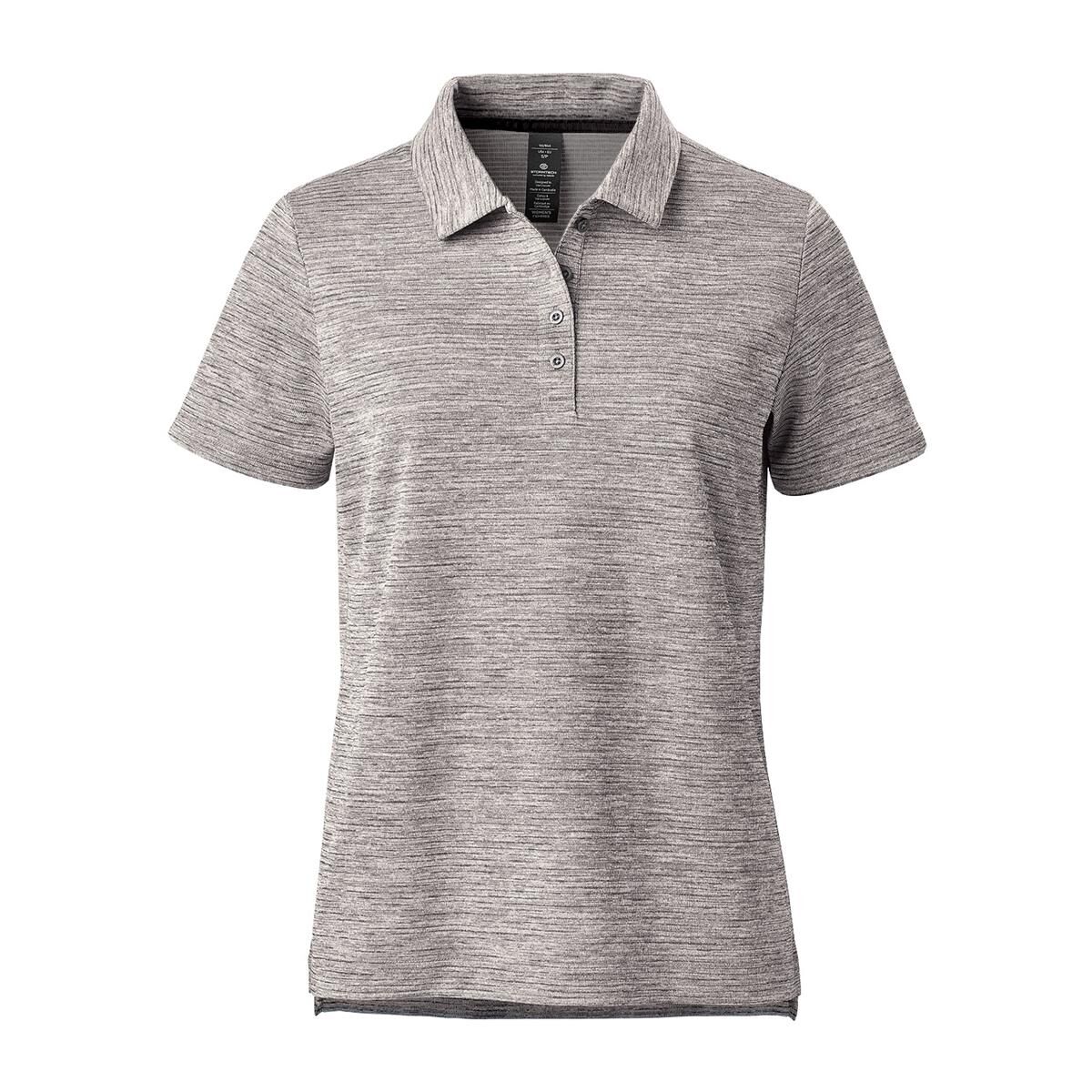Description
This textured H2X-DRY® Moisture Management polo combines performance with top caliber design. Artfully crafted features with set-in sleeves, a self-fabric collar and a classic button placket take looking great to new heights. Made from 50% Recycled Polyester for a reduced environmental footprint.
• Pure Earth by STORMTECH™
• STORMTECH H2X-DRY® Moisture Management
• UPF Rating 50+
• Engineered Anti-Curl Collar
• Classic 3-Button Placket
• Dropped Back with Hem Side Slits
• Mechanical Stretch
• 50% Recycled Polyester/50% Polyester, 4.72 oz/yd2 (USA) / 160gsm (CDN)
Additional information
| Colour | Charcoal Mix, Grey Mix |
|---|---|
| Decoration | Small Embroidery up to 5K stitches, Medium Embroidery up to 10k stitches, Large Embroidery up to 15K Stitches 18cm wide, Extra Large Embroidery 20k embroidery over 18cm, Small Full colour digital Transfer 10x10cm (SuperColour), A4 Full colour digital Transfer (SuperColour), A3 Full colour digital Transfer (SuperColour), 1 Colour ScreenPrint (light colours only), 2 Colour ScreenPrint (light colours only), 3 Colour ScreenPrint (light colours only), 4 Colour ScreenPrint (light colours only), 1 Colour ScreenPrint (dark colours only), 2 Colour ScreenPrint (dark colours only), 3 Colour ScreenPrint (dark colours only), 4 Colour ScreenPrint (dark colours only), None |
| Decoration 2 | None, Small Embroidery up to 5K stitches, Medium Embroidery up to 10k stitches, Large Embroidery up to 15K Stitches 18cm wide, Extra Large Embroidery 20k embroidery over 18cm, Small Full colour digital Transfer 10x10cm (SuperColour), A4 Full colour digital Transfer (SuperColour), A3 Full colour digital Transfer (SuperColour), 1 Colour ScreenPrint (light colours only), 2 Colour ScreenPrint (light colours only), 3 Colour ScreenPrint (light colours only), 4 Colour ScreenPrint (light colours only), 1 Colour ScreenPrint (dark colours only), 2 Colour ScreenPrint (dark colours only), 3 Colour ScreenPrint (dark colours only), 4 Colour ScreenPrint (dark colours only) |
| Decoration 3 | None, Small Embroidery up to 5K stitches, Medium Embroidery up to 10k stitches, Small Full colour digital Transfer 10x10cm (SuperColour), 1 Colour ScreenPrint (light colours only), 2 Colour ScreenPrint (light colours only), 3 Colour ScreenPrint (light colours only), 4 Colour ScreenPrint (light colours only), 1 Colour ScreenPrint (dark colours only), 2 Colour ScreenPrint (dark colours only), 3 Colour ScreenPrint (dark colours only), 4 Colour ScreenPrint (dark colours only) |
| Optional | None, Poly Bagging, Embroidered names up to 2k stitches, Names up to 12cm wide Powerprint, Screen printed Neck label |
| Material | H2X-Dry Moisture Management, Polyester, Recycled Polyester |
| Production Time | 2 Weeks Production Time |
Our guarantee
All of our products are fully guaranteed to work, look and feel as designed.
Our most highly regarded company value at Good Things is integrity. We do what we say we are going to do in a timely fashion. We get "Back in a Flash" to all our clients for quotes, artwork and samples.
It is essential in our industry - from meeting delivery deadlines, through to having a product match a sample when delivered to each minute detail.
When dealing with us you can expect to get exactly what you ordered: as agreed, and on time. That is the Good Things Guarantee.
Product reviews
Women’s Torrente Polo
99.4% jobs
delivered on-time
Free graphic
design
Quotes within
24 hours
Get an instant quote
Description
This textured H2X-DRY® Moisture Management polo combines performance with top caliber design. Artfully crafted features with set-in sleeves, a self-fabric collar and a classic button placket take looking great to new heights. Made from 50% Recycled Polyester for a reduced environmental footprint.
• Pure Earth by STORMTECH™
• STORMTECH H2X-DRY® Moisture Management
• UPF Rating 50+
• Engineered Anti-Curl Collar
• Classic 3-Button Placket
• Dropped Back with Hem Side Slits
• Mechanical Stretch
• 50% Recycled Polyester/50% Polyester, 4.72 oz/yd2 (USA) / 160gsm (CDN)
Additional information
| Colour | Charcoal Mix, Grey Mix |
|---|---|
| Decoration | Small Embroidery up to 5K stitches, Medium Embroidery up to 10k stitches, Large Embroidery up to 15K Stitches 18cm wide, Extra Large Embroidery 20k embroidery over 18cm, Small Full colour digital Transfer 10x10cm (SuperColour), A4 Full colour digital Transfer (SuperColour), A3 Full colour digital Transfer (SuperColour), 1 Colour ScreenPrint (light colours only), 2 Colour ScreenPrint (light colours only), 3 Colour ScreenPrint (light colours only), 4 Colour ScreenPrint (light colours only), 1 Colour ScreenPrint (dark colours only), 2 Colour ScreenPrint (dark colours only), 3 Colour ScreenPrint (dark colours only), 4 Colour ScreenPrint (dark colours only), None |
| Decoration 2 | None, Small Embroidery up to 5K stitches, Medium Embroidery up to 10k stitches, Large Embroidery up to 15K Stitches 18cm wide, Extra Large Embroidery 20k embroidery over 18cm, Small Full colour digital Transfer 10x10cm (SuperColour), A4 Full colour digital Transfer (SuperColour), A3 Full colour digital Transfer (SuperColour), 1 Colour ScreenPrint (light colours only), 2 Colour ScreenPrint (light colours only), 3 Colour ScreenPrint (light colours only), 4 Colour ScreenPrint (light colours only), 1 Colour ScreenPrint (dark colours only), 2 Colour ScreenPrint (dark colours only), 3 Colour ScreenPrint (dark colours only), 4 Colour ScreenPrint (dark colours only) |
| Decoration 3 | None, Small Embroidery up to 5K stitches, Medium Embroidery up to 10k stitches, Small Full colour digital Transfer 10x10cm (SuperColour), 1 Colour ScreenPrint (light colours only), 2 Colour ScreenPrint (light colours only), 3 Colour ScreenPrint (light colours only), 4 Colour ScreenPrint (light colours only), 1 Colour ScreenPrint (dark colours only), 2 Colour ScreenPrint (dark colours only), 3 Colour ScreenPrint (dark colours only), 4 Colour ScreenPrint (dark colours only) |
| Optional | None, Poly Bagging, Embroidered names up to 2k stitches, Names up to 12cm wide Powerprint, Screen printed Neck label |
| Material | H2X-Dry Moisture Management, Polyester, Recycled Polyester |
| Production Time | 2 Weeks Production Time |
Our guarantee
All of our products are fully guaranteed to work, look and feel as designed.
Our most highly regarded company value at Good Things is integrity. We do what we say we are going to do in a timely fashion. We get "Back in a Flash" to all our clients for quotes, artwork and samples.
It is essential in our industry - from meeting delivery deadlines, through to having a product match a sample when delivered to each minute detail.
When dealing with us you can expect to get exactly what you ordered: as agreed, and on time. That is the Good Things Guarantee.
